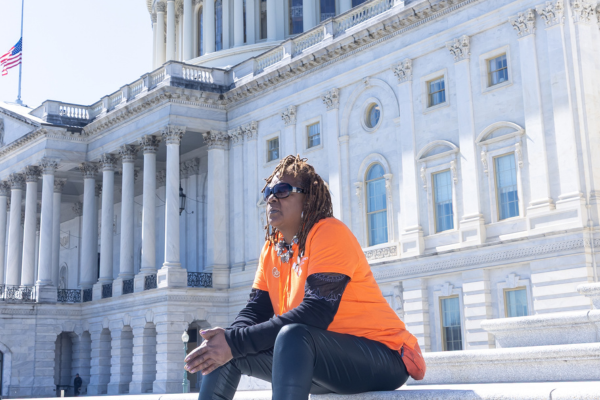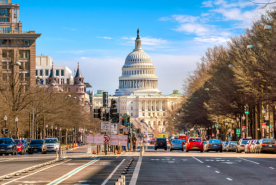October 14, 2025
The 2025 government shutdown won’t stop your dialysis or Medicare coverage. But some services may be delayed. Learn what kidney patients need to know.
Updated: October 14, 2025
As of October 1, 2025, the federal government has entered a shutdown after Congress failed to pass an agreement to fund government operations for the new fiscal year. If you're living with kidney disease or receiving dialysis treatments, you're probably wondering how this affects your care. Here's what you need to know.
The Good News: Your Core Benefits Continue
Your dialysis treatments and Medicare and Medicaid coverage will NOT be interrupted. This is the most important thing to understand. Medicare and Medicaid are considered "mandatory programs" funded through permanent appropriations, not annual spending agreements.
This means:
- Dialysis treatments will continue at your regular schedule
- Appointments related to receiving a kidney transplant continue as normal
- Medicare payments to dialysis centers continue as normal
- Medicaid coverage continues without interruption
- Social Security benefits continue as normal
- Veterans' healthcare remains operational
The Centers for Medicare & Medicaid Services has confirmed that your benefits and coverage will continue as before, and you can go to your doctor and access the healthcare services you need.
What May Be Affected
While your core treatments are safe, some support services could face disruptions:
Telehealth Services for Medicare Beneficiaries
On October 1, many COVID-era telehealth flexibilities ended. This means telehealth coverage has reverted to pre-pandemic rules, with more limited access. However, there are important exceptions for kidney patients:
- Home dialysis patients can continue to manage their care from home, while staying connected with their kidney care team
- Rural residents can access telehealth options at an approved medical site (not their home) for non-mental health care purposes
Get a more in-depth review of telehealth coverage.
Administrative Functions
Some government offices may have reduced staffing, which could cause delays in:
- Processing new Medicare applications or changes
- Customer service response times at Medicare
- IRS income verification (sometimes needed for Medicaid eligibility)
- New benefit verifications or card issuance
Community Health Centers
Community Health Center funding expired on October 1, though the Health Resources & Services Administration has advised that centers can continue drawing down grants during the shutdown.
If you receive care at a community health center, check with them about any potential service changes.
What Makes This Shutdown Different
Unlike previous shutdowns, the Office of Management and Budget (OMB) has directed agencies to prepare for potential Reductions in Force (RIF), not just temporary furloughs.
This more aggressive approach could permanently eliminate some positions rather than just temporarily furloughing workers.
What You Can Do Now
National Kidney Foundation (NKF) recommends taking these proactive steps:
For Dialysis Patients
- Talk to your social worker about changes that may impact your access to care
- Discuss payment plans if insurance coverage changes
For Pre-Dialysis CKD Patients
- Get a comprehensive kidney evaluation now while coverage is certain
- Establish care with a nephrologist before you need dialysis
For All Kidney Patients
- Maintain employer insurance if possible
- Understand your Medicaid eligibility and what you need to maintain coverage
- Learn about ACA marketplace options and enrollment periods
- Verify immunosuppressive drug coverage across all your insurance plans
- Research foundation assistance programs
Stay Informed and Get Help
NKF is actively monitoring the implications of the government shutdown and advocating for kidney patients.
You can:
- Contact NKF Cares for personalized help. Call toll-free at 855.653.2273 or email nkfcares@kidney.org (Monday-Friday, 9 am-7 pm ET, available in English and Spanish)
- Take Action with NKF's Voices for Kidney Health advocacy program to make your voice heard
- Get NKF's Advocacy Newsletter to stay informed about policy changes
The Bottom Line
Your dialysis treatments and Medicare coverage are protected during the government shutdown. While some administrative functions may be slower and some support services affected, your core healthcare will continue without interruption.
However, broader healthcare policy changes throughout 2025 may impact your coverage and care options. Stay connected with your healthcare team, social worker, and advocacy organizations like NKF to navigate these challenges.
Explore related NKF articles:
- The “One Big Beautiful Bill” Healthcare Cuts: What It Means for CKD, ESKD, Dialysis & Transplant Patients
- Medicare Open Enrollment 2025: Updates for Dialysis and Transplant Patients
This information is current as of October 14, 2025. For the most up-to-date information about your specific situation, contact your healthcare provider, social worker, or NKF Cares.











